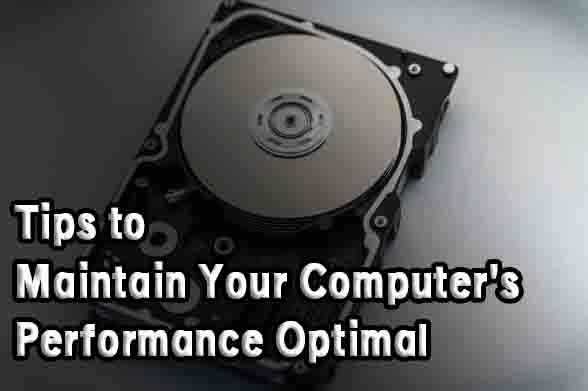Suboptimal computer performance is one of the things computer users want to avoid. When you rely on a device for work, studies, or even entertainment, it is easier to have a good experience when the computer performs optimally.
Naturally, if you own a relatively new computer, you are less likely to experience performance issues even if you do not bother to spend time on maintenance.
On the other hand, the issues build up over time and lead to notable changes in how your device runs. Sluggishness and random crashes are two examples of common computer issues.
The frequency at which you have to deal with these issues increases when your computer gets older.
Ultimately, some people reach a point where they cannot deal with computer problems anymore and simply purchase a new device.
Others, meanwhile, cannot afford to spend money on a new computer, so it is only fair that they invest time to try and improve the device’s performance.
If you are also looking to make your computer run better, make the most out of the tips mentioned below.
Table of Contents
Cleaning the Dust
One of the biggest signs of a computer having performance issues is the loud noise coming from the internal fans. Overheating should not be ignored either. Once you notice that things are getting out of hand, do not delay and take some action.
Cleaning the dust inside a laptop is tricky because you have a more difficult time taking it apart than a desktop computer. Nevertheless, you have to do it, and you have to get in the habit of doing it regularly.
In case you own a laptop, you should also consider getting a cooling pad. Investing some money in computer accessories is a good approach to maintain the device’s performance at a decent level, and a cooling pad does well, thanks to the fresh air it provides. However, you should still prioritize cleaning the dust inside your computer.
Freeing Up Drive Storage
Next, we have the problem of running out of disk space on a computer. Only a few gigabytes of free space spells trouble.
If you are not careful, figuring out what exactly is causing the problem with storage can be quite tricky. Identifying large media files and old downloads is all well and good, but that might not be enough.
You also have to consider temporary system junk, such as caches and plugins that you cannot see without tinkering with the OS settings. Or, if you want, you can check a list of uninstallers here to choose from and use one for yourself.
It is worth mentioning external storage as well. Both clouds and a hard drive or even a USB flash stick can make a difference.
Overall, you should aim to have as much unoccupied storage on your computer as possible. And if you want even more tips on how to achieve that, the video below is worth a watch.
Checking for Malware
Careful and knowledgeable computer owners should be aware of cybersecurity threats and identify them right away. Shady emails, people sending you files via various platforms, and other instances of potential threats are identified before they can cause problems.
On the other hand, there are times when a threat is smart enough to fool even relatively experienced computer users, so you should not underestimate the potential of having your computer infected.
Be sure to scan the system using reliable antivirus software and confirm that the computer is not infected. Any corrupted files should be removed right away. And if the scan shows clean results, you have one less problem to worry about and focus on other aspects of optimizing your computer’s performance.
Managing Background Processes
The odds are that too many background processes are running while your computer is active. One of the reasons behind this is the fact that you do not bother cleaning the startup item list. Apps that launch each time you boot the computer need to be closed manually.
If you are on macOS, open Activity Monitor. If you are on MS Windows, use Task Manager. The goal is to identify which processes are consuming the most resources and whether you can quit them.
For instance, an antivirus tool should run in the background all the time so that it can protect the computer from potential threats. Meanwhile, if an app is redundant since you are not using it at the time, there is really no need to have it run in the background, right?
Finally, you might find that some applications are consuming too many resources, and finding alternatives could be a better approach. Google Chrome is a great example. As an Internet browser, it is the most popular option, but Chrome is notorious for memory consumption, and users who want to avoid resource consumption on their computers should consider a different Internet browser.

